This Sidymella, widespread and common in NSW and South East Queensland and perhaps elsewhere from rainforest to arid places, has a long, raised, sometimes festooned, sometimes double-pointed end to its abdomen. The cephalothorax is relatively flat. Legs I and II are exceptionally long and held outstretched. This species was included in Mascord's Spiders in colour, 1970, plate 25.97 on page 58. ♀ 8-12mm ♂ 3-8mm
- Female face on, dark cephalothorax
- Female from above
- Male adult facing
- Male sub adult closeup of tail
- Persian slippers, facing
- Persian slippers, from behind
- Female adult in alcohol from side, facing 24-02-11 Glenbuck
- Epigyne
- Female, awl-shaped knobbly adbdomen
- Female Swallowtail 28-08-09 WBR facing
- Bifurcated tail and prominent side spots 09-Sep-WBR
- Female adult paddle-tail
- Paddle-tail closeup
- Female adult from above GH-10-24-09
Female face on, dark cephalothorax
Sidymella sp body length about 3.5mm
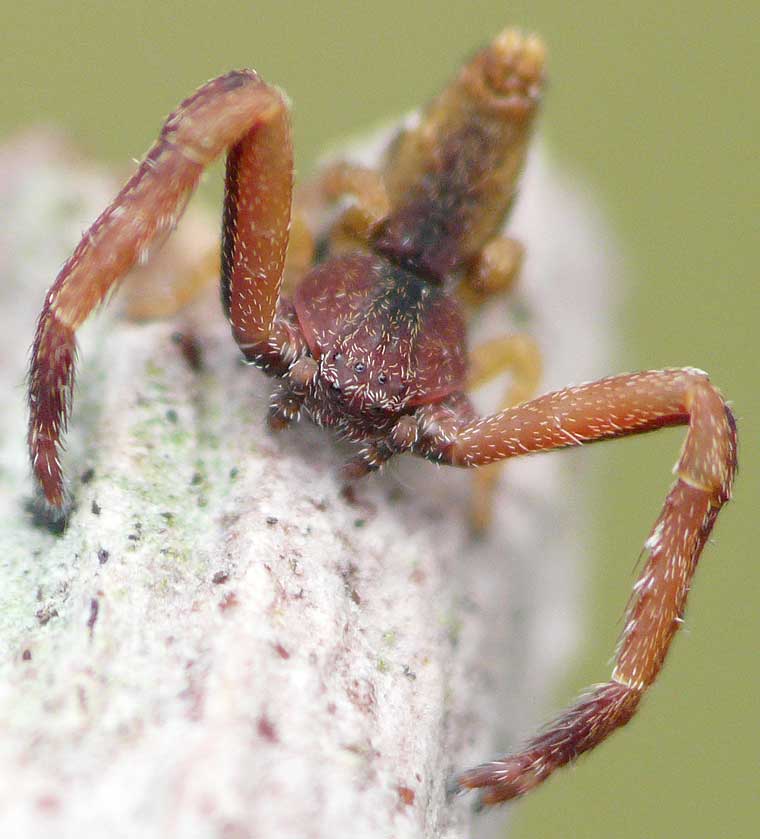
Female from above
Sidymella sp body length about 3mm, collected 11 June 2008 northern bank of junction of Fish and Enoggera Creeks. This spider was gathering its silk, then rolling it into a ball and eating it.

Male adult facing
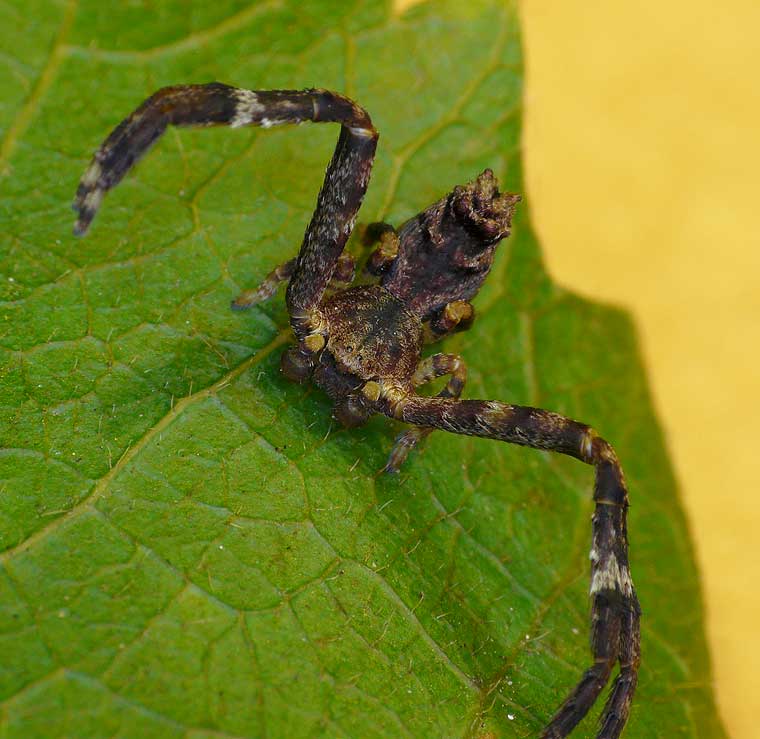
Male sub adult closeup of tail
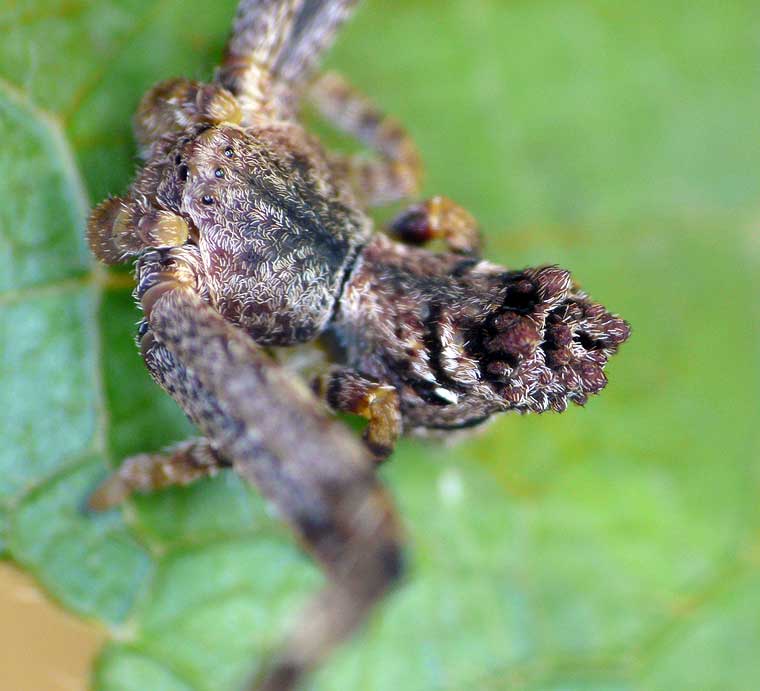
Persian slippers, facing
These exaggerated, curled peaks are reminiscent of Persian slippers.
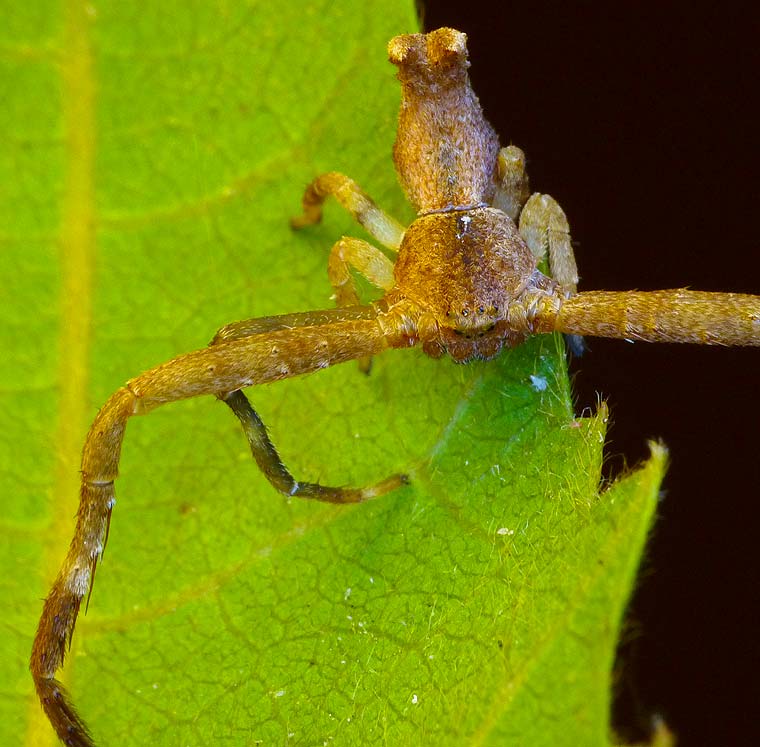
Persian slippers, from behind
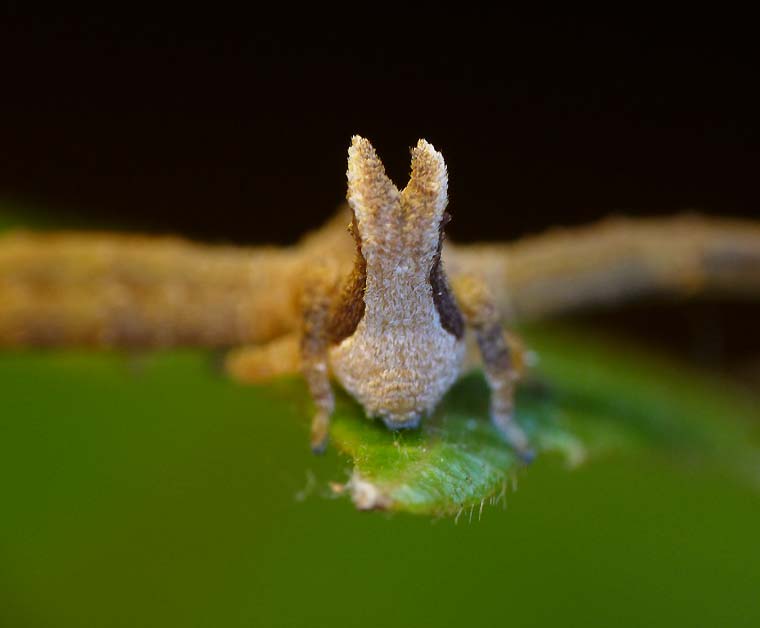
Female adult in alcohol from side, facing 24-02-11 Glenbuck
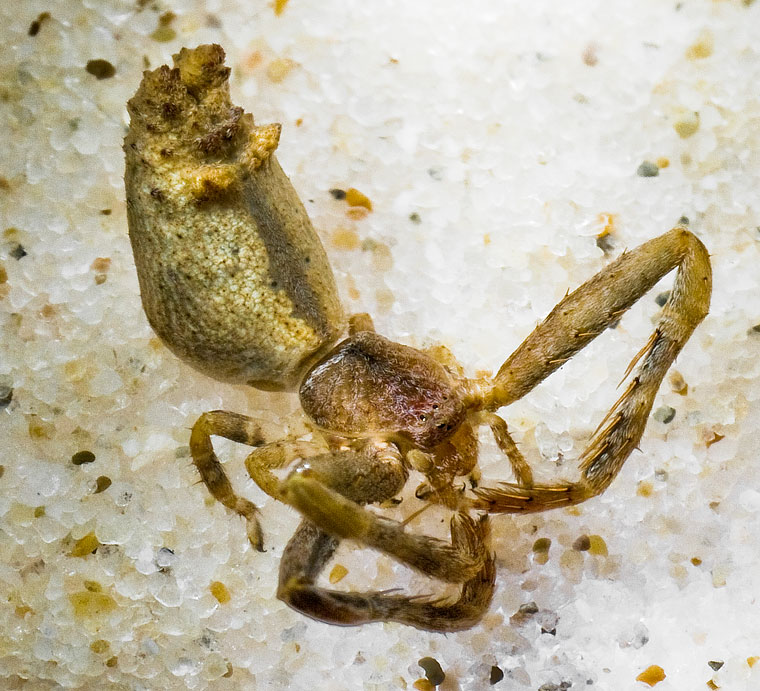
Epigyne

Female, awl-shaped knobbly adbdomen
Collected from treetops behind Bardon State School, Brisbane 2011.
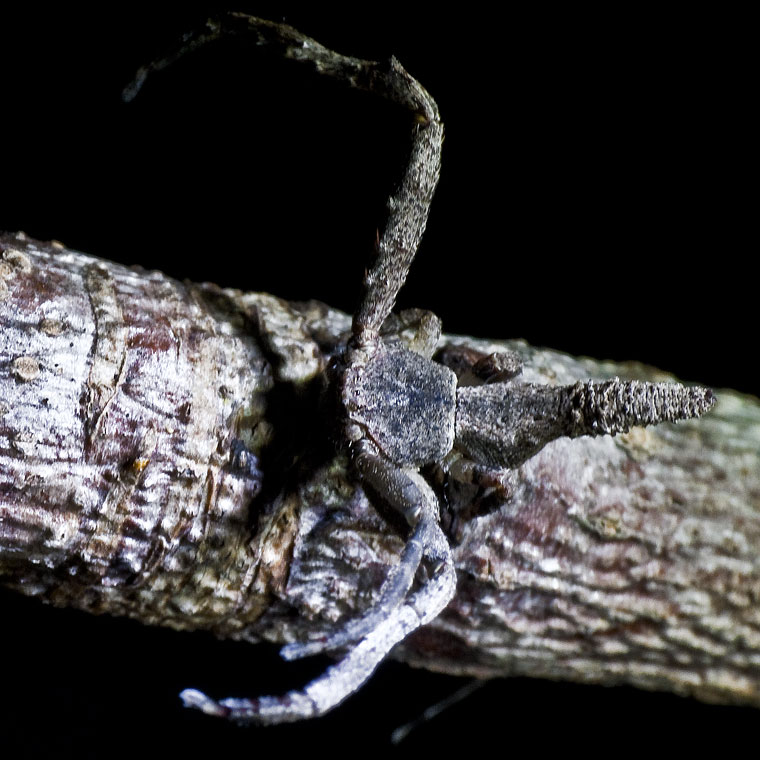
Female Swallowtail 28-08-09 WBR facing
This Sidymella with black spots on either site of the abdomen and a flattened, swallowtail-shaped abdomen, body length 8mm, was collected late August on the northern side of the junction of Fish and Enoggera Creeks, Walton Bridge Reserve, The Gap.

Bifurcated tail and prominent side spots 09-Sep-WBR

This specimen collected on the northern side of the junction of Fish and Enoggera Creeks, Walton Bridge Reserve, The Gap, early September 2009. This specimen has a pronounced bifurcated swallowtail and prominent sides spots.
Female adult paddle-tail
This Sidymella does not have an obviously bifurcated tail, see the following closeup.
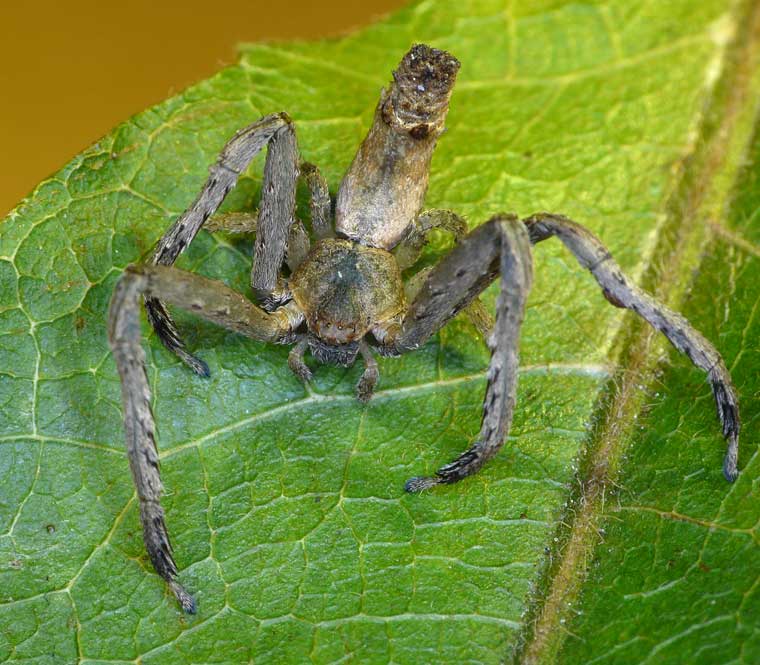
Paddle-tail closeup

Female adult from above GH-10-24-09


